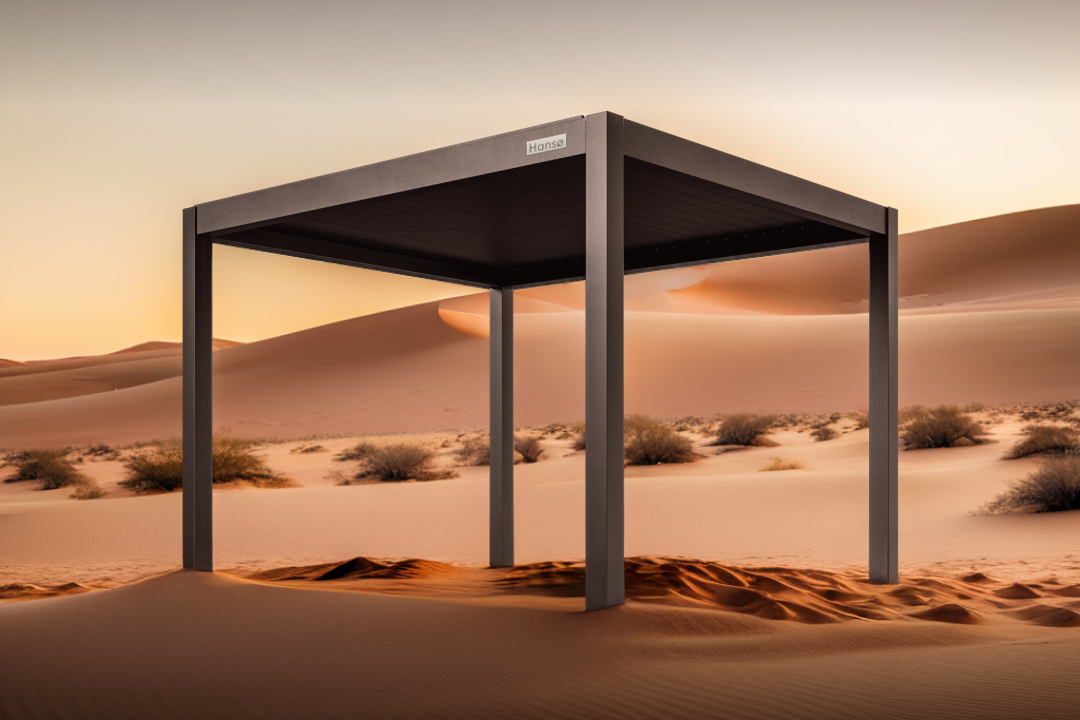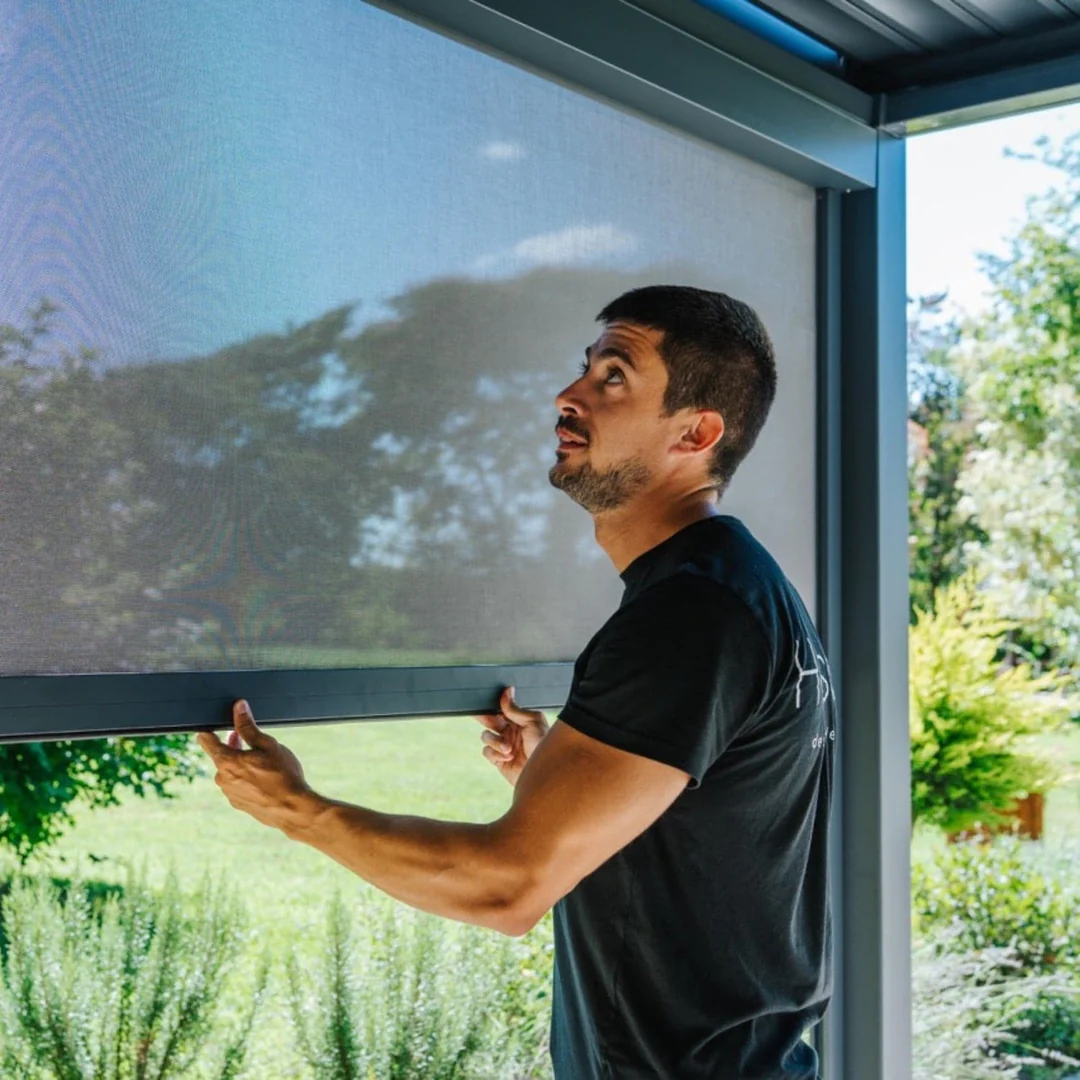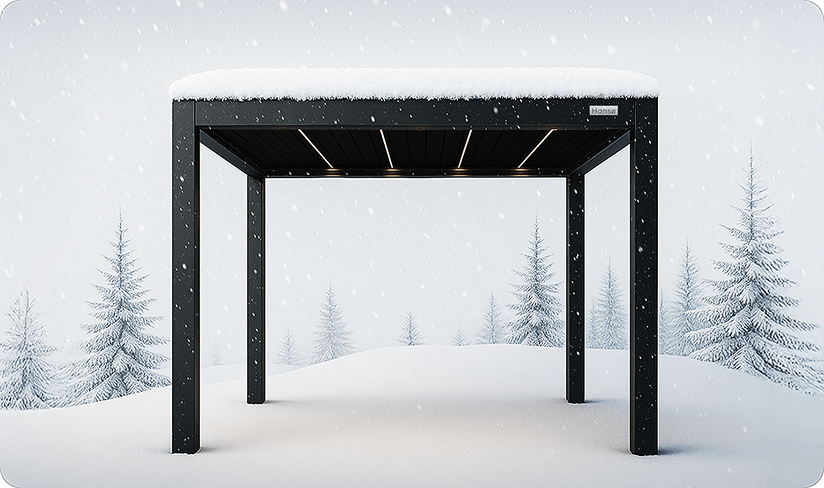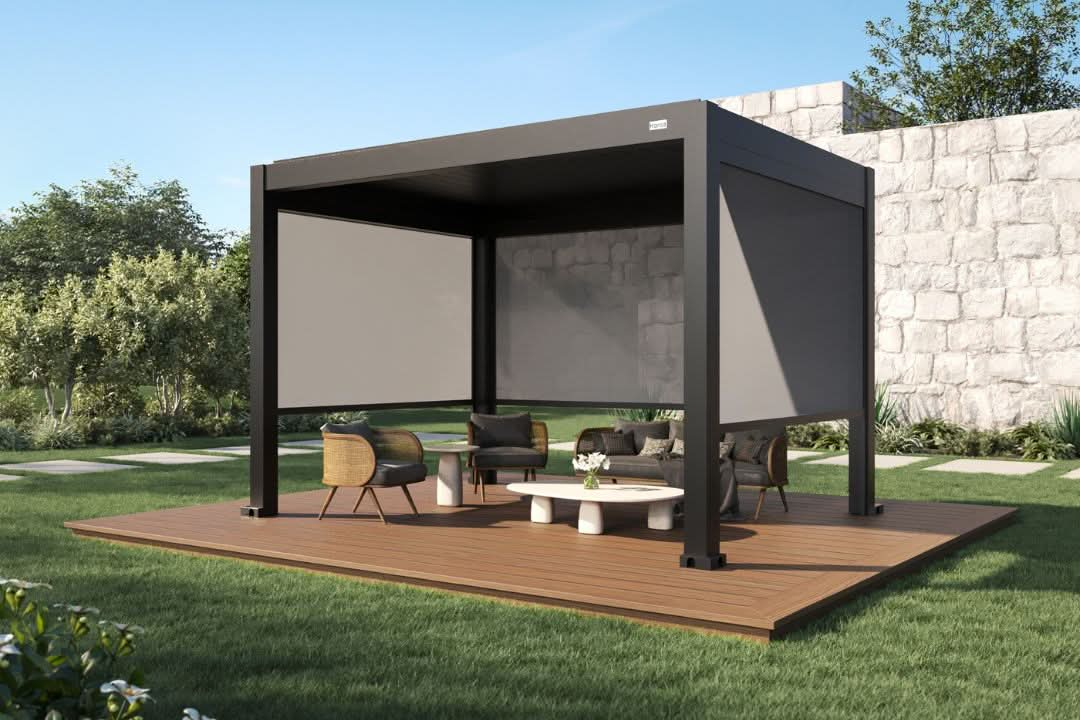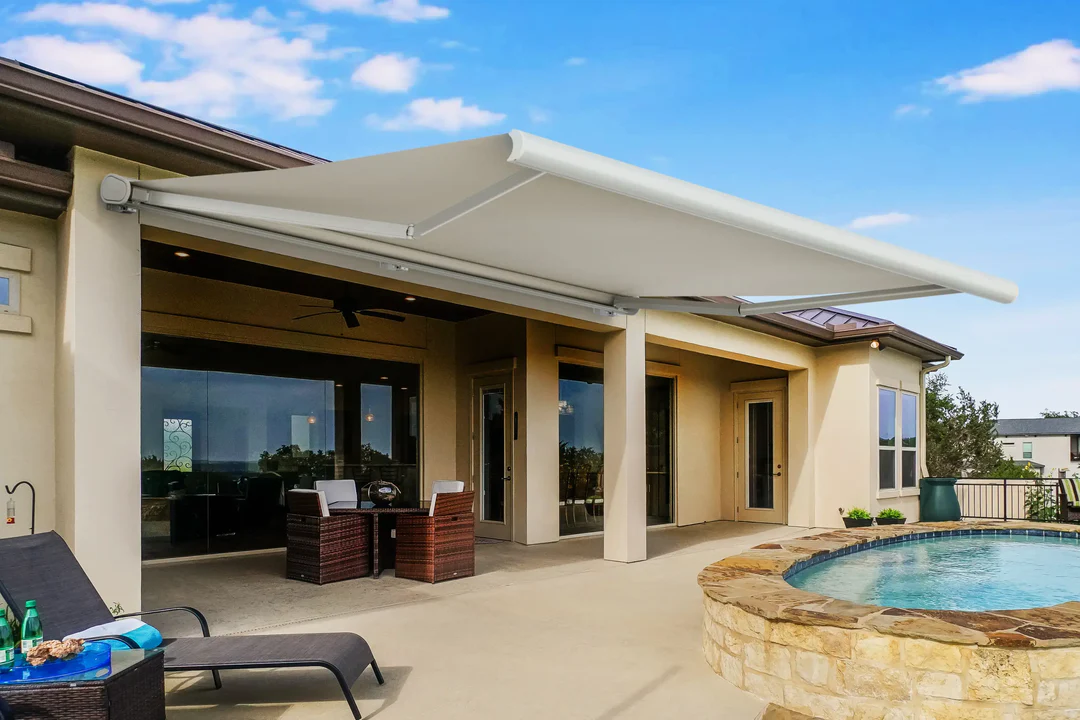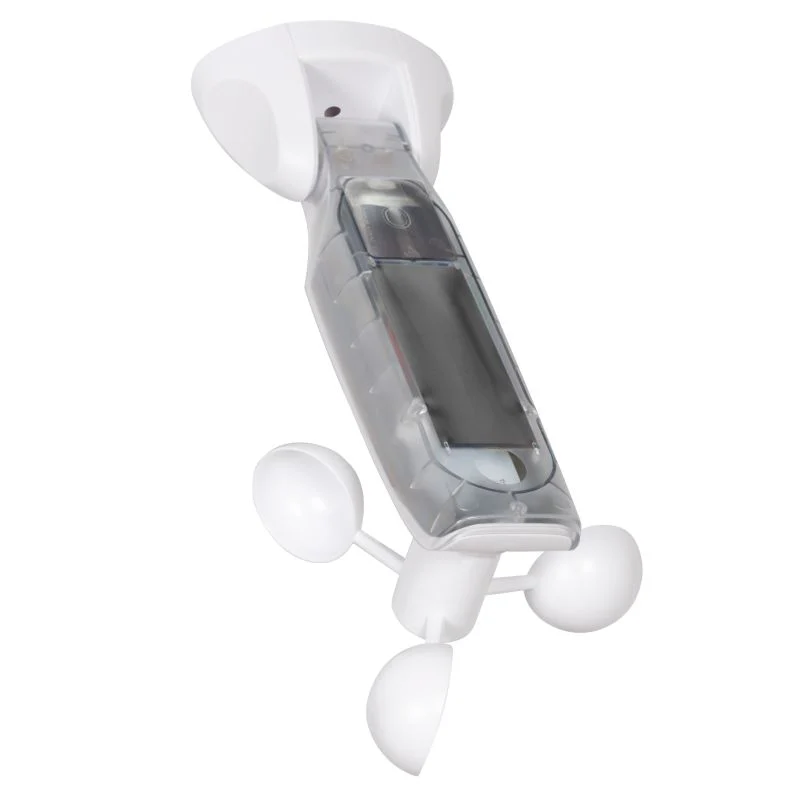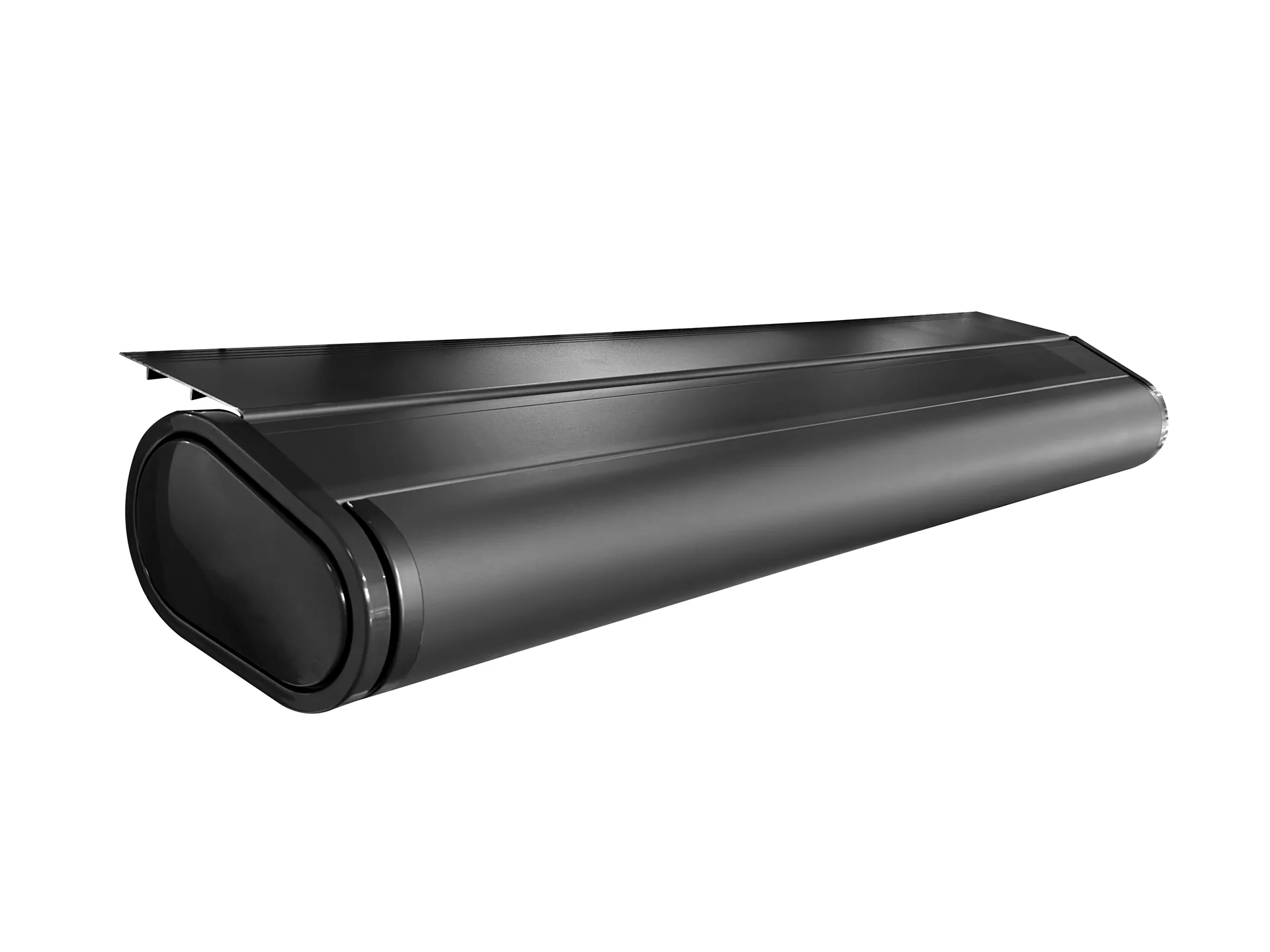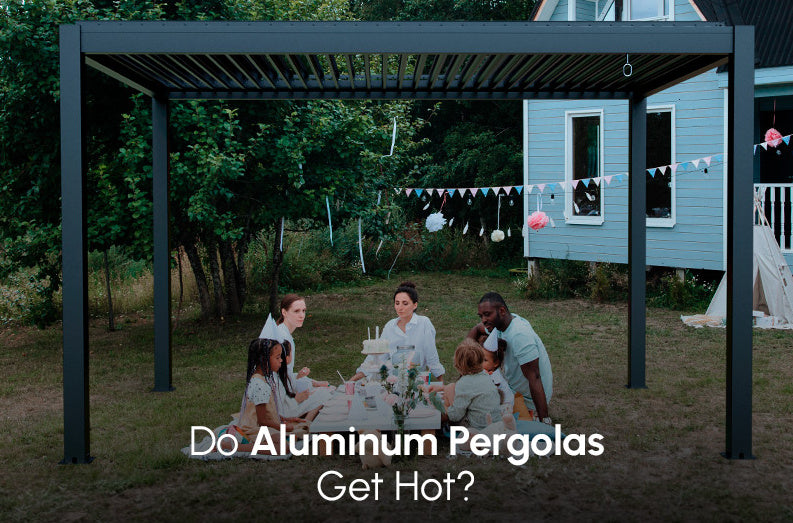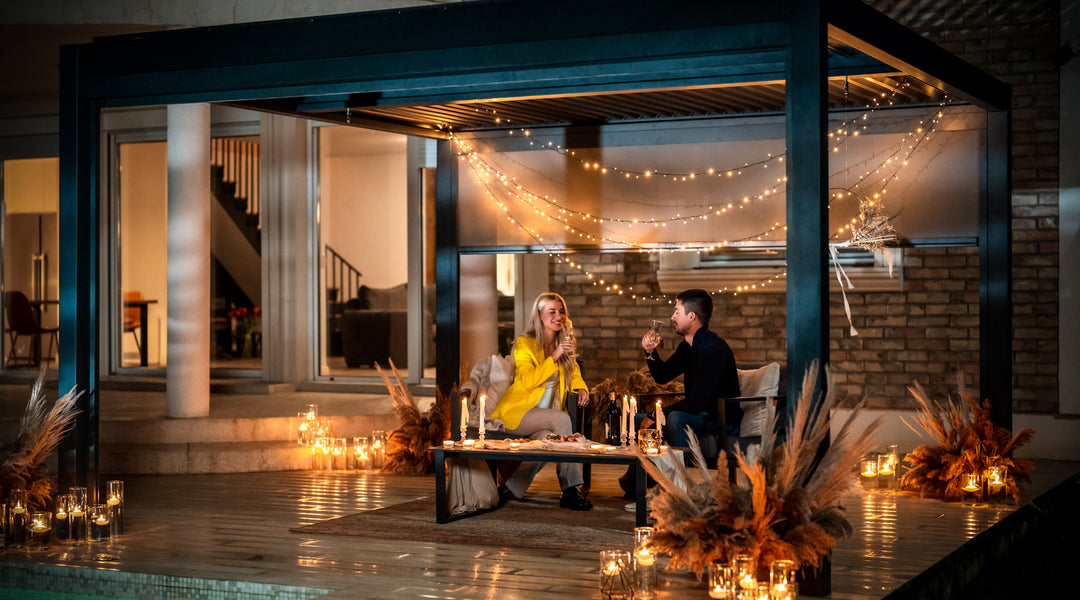Metal Pergola: Which One is The Best? Buying Guide

If you've been to modern homes with peaceful outdoor areas, you've probably been amazed by how sleek and stylish metal pergolas, especially aluminum and steel.
While traditional choices like wood and vinyl have their own charm, metal pergolas, especially those made from aluminum, are emerging as the modern-day champions of durability and elegance.
What Is a Metal Pergola?
A metal pergola is a sturdy outdoor structure typically made of aluminum or steel, favored for its strength, durability, and low maintenance.
Unlike traditional wooden pergolas, metal ones can also be made from other materials like galvanized or stainless steel, wrought iron, or copper, with aluminum being preferred for its lightweight, durability and resistance to corrosion.
How Long Do Metal Pergolas Last As Compared To Other Materials?

When it comes to investing in a backyard feature, durability is often at the forefront of everyone's mind.
How does a metal pergola's lifespan compare to other popular choices like wood and vinyl?
Steel Pergolas
When we talk about steel pergolas, their inherent strength and ruggedness come to the forefront. A well-maintained steel pergola can grace your backyard for anywhere between 10 to 20 years.
But powder coating is necessary for steel pergola durability. This protective layer not only imparts a polished finish but also acts as a robust shield against the elements.
Simply put, it's their defense mechanism, ensuring they remain resilient against corrosion and wear.
Aluminum Pergolas
On the other side of the metal spectrum lies aluminum pergolas. Known for its lightweight nature and inherent resistance to rust, aluminum pergolas have carved a niche for themselves.
Maintained aluminum pergola boasts a remarkable lifespan of 20 to 30 years. What's even more impressive is that some of these structures, when looked after with care, can even surpass this threshold.
The fact that aluminum is naturally rust-resistant means less intensive care than a steel pergola, yet the importance of regular checks and occasional maintenance shouldn't be underestimated.
Factors To Be Considered Before Buying A Metal Pergola

Both aluminum and steel pergolas offer distinct advantages.
But to determine the best metal pergola for your needs, it's essential to understand the nuances of each.
Let's dive into the factors:
1. Weather Resistance

Pergolas, which often become the centerpiece of a garden or patio, need to have the resilience to hold up against everything Mother Nature throws their way.
This is where the choice of material becomes crucial.
- Aluminum Pergola
Aluminum, with its naturally corrosion-resistant properties, stands out as a champion against the elements.
When it comes to battling the harsh sun, aluminum pergolas hold their ground exceptionally well.
Their innate ability to fend off harmful UV rays and acid rain ensures that their color and structural integrity remain intact.
Whether it's rain, shine, or snow, homeowners can rest easy knowing their aluminum pergola will face minimal wear and fading over the years.
- Steel Pergola
Steel, undeniably strong and sturdy, presents a different set of strengths and challenges.
When coated or treated, especially with processes like powder coating, steel can rival many materials in weather resistance.
However, it's key to remember that this resistance isn't inherent in steel. It's dependent on regular upkeep.
Exposure to moisture without proper protective layers might lead to rust, and those once vibrant colors may start to dull under continuous UV exposure.
To keep a steel pergola looking its best and to maintain its weather-resistant qualities, periodic maintenance becomes necessary.
2. Sturdiness

The sturdiness of a pergola is very important.
After all, this structure is set to be a permanent fixture in your outdoor space, bearing the brunt of the weather and serving as a focal point for gatherings.
So how do aluminum and steel pergolas stack up in this department?
- Aluminum
Aluminum might be light, but don't let its weight fool you. Its structural integrity is undeniably impressive.
The key lies in its formulation and the advanced engineering techniques employed in its construction.
The modern design of aluminum pergolas, coupled with the inherent properties of the material, ensures they can support weight and resist bending or warping.
So, while they're easier to move and install due to their light weight, they remain steadfast once anchored in place.
- Steel
Most people in the building industry know what steel is good for.
It's a choice among people who want undeniable strength because it's dense and solid. Steel pergolas consistently show that they are strong, whether they're facing strong winds or supporting lots of lush plants hanging from above.
Even in tough conditions, they offer a strong base that provides stability.
However, it's essential to bring in the broader context.
Yes, steel is generally stronger than aluminum.
But there's a twist:
When you consider the lighter weight of aluminum, it showcases a brilliant strength-to-weight ratio.
This means that, pound for pound, aluminum can be just as sturdy than its steel counterpart.
3. The Weight Factor

Next, understanding the weight implications of your chosen material is pivotal.
- Aluminum Choice
Light as a breeze yet incredibly sturdy, aluminum is a favorite for many. The lightweight nature of aluminum pergolas makes them a top choice for homeowners wanting a easy installation.
This isn't just about ease – it also opens up a world of design possibilities.
Plus, given its impressive strength-to-weight ratio, you’re guaranteed a pergola that stands firm, even while being lighter.
- Steel Choice
There is no denying the weight of steel.
Steel is a great choice as it holds more weight, but is also heavier and more suitable for extra large yards or even businesses due to its weight.
Because of the weight, you'll need to make sure you have the right anchoring gear and maybe even hire someone to help you set it up.
4. Installation Ease

Here's a dive into the installation process of aluminum pergolas versus steel pergolas.
- Aluminum Pergola
Aluminum pergolas continues to be a game-changer in the world of pergolas, not just for its strength and aesthetics, but also for its ease of installation.
Thanks to its lightweight nature, many modern aluminum pergola kits come with straightforward assembly instructions, making the process relatively hassle-free.
So, if you're looking at creating that dreamy backyard discovery over a weekend, an aluminum pergola, with its DIY-friendly setup, might just be your pick.
- Steel Pergola
The fitting process is more difficult for steel because it is heavier, as mentioned above.
It often takes a little more work to get to the end result, which is a strong and very stable frame.
Because it is heavy, it needs to be handled carefully, and the mounting gear needs to be used correctly.
A lot of people choose to get professional help, which could make the setup take longer and cost more overall.
5. Cost Considerations

When aiming to elevate your outdoor space, making an informed financial decision is crucial.
Whether you're drawn to the modern appeal of rectangular pergola designs or the classic charm of climbing vines, understanding the cost implications of your chosen pergola material is a game-changer.
Let's delve into the price points of aluminum pergolas and steel pergolas.
- Aluminum Pergola
Initially, the cost of an aluminum pergola may seem comparable or even a tad higher than steel.
However, when you consider the potential savings from DIY installation - thanks to clear assembly instructions - and the minimal maintenance required over the years, it often emerges as a value-packed choice.
- Steel Pergola
At face value, steel pergolas might seem economically competitive.
Yet, the need for anchoring hardware due to their weight, the likelihood of professional installation, and periodic treatments to fend off weather-related wear can incrementally push the overall expenditure higher.
6. Temperature Affects On Your Steel or Aluminum Pergola

After all, your pergola will be exposed to various climates, from scorching summers to frosty winters.
Let's see how aluminum and steel pergolas stand their ground against temperature fluctuations.
- Aluminum
Aluminum expands and contracts more evenly with temperature, preventing warping. It melts lower than steel, but still it doesn't make any difference here, because melting tempure is 660 C / 1220 F. Need to say that aluminum cools faster than steel after high temperatures.
- Steel
Because steel expands and contracts with temperature, uneven heating or cooling can deform it.
Steel retains heat longer, making it hot to touch after prolonged sunlight or high temperatures.
Pros & Cons of Metal Pergolas
Pros:
- Enhanced Longevity: Metal pergolas, particularly those crafted from aluminum, outlast their wooden counterparts, offering a more enduring solution for outdoor spaces.
- All-Weather Resilience: These pergolas can withstand diverse weather conditions, including harmful UV rays, ensuring they remain a staple in gardens across various climates.
- Ease of Upkeep: Unlike some other materials, metal pergolas often demand only sporadic cleaning and protection against rust.
- Design Flexibility: Metal pergolas can be as stylish as wooden ones. Metal pergolas are modern ones, so there are a lot of designs available to suit different aesthetic preferences.
- Budget-Friendly Options: While the cost can vary, certain metal pergolas, especially those made of aluminum, can be a more economical choice.
Cons:
- Potential High Costs: Metals like wrought iron and copper can raise the price tag of a pergola. Also, pay attention to a seller. Buy any metal pergola only from a trusted seller.
- Maintenance Concerns: Pergolas made from materials like steel or wrought iron might need consistent care to fend off rust and deterioration.
- Weight: Certain metals, such as wrought iron, add considerable weight, necessitating special installation considerations.
- Heat: Regardless of the material, your pergola can heat up from the sun in hot climates. It is recommended to think about additional sun shades or the louvered roof in order to maintain more shade.
Where To Buy a Metal Pergola?
As we wrap up our exploration of metal pergolas and the materials that define them, it's evident that while both aluminum and steel have their merits.
The aluminum louvered pergola emerges as a leading and best choice for many homeowners.
Its perfect blend of durability, aesthetic appeal, and adaptability to various weather conditions makes it an exceptional addition to any outdoor space.
If you're on the hunt for the best metal pergola option you might want to turn your attention to the Hanso modern and lab tested louvered Aluminum Pergola Kit.
With a starting price of just $5,997, it promises superior quality without breaking the bank.
Here's the deal:
When buying an aluminum pergola from Hanso Home, you won't have to worry about installation services.
You will be able to assemble the pergola yourself (you will need a help from another person as well, in total 2 person is enough) in less than 4 hours.
To do this, you will receive complete instructions and save a lot of time and money.
It gets better:
You will get a 100-day guarantee.
You purchase it, assemble it, and test it within the first one hundred days; if you are not satisfied, you contact us, return it via shipping, and receive a refund.
The Hanso Home pergola is considered one of the best choices on the market for metal pergolas.
Frequently Ask Questions
How Long Do Metal Pergolas Last?
Metal pergolas, when properly maintained, can last for 20 to 30 years, depending on the material and environmental conditions. Regular upkeep and protection from extreme weather can extend their lifespan.
How Long Does it Take to Assembly Metal Pergola?
The assembly time for a metal pergola varies based on its material, structure, size, and other factors. Typically, with a basic toolkit and some assistance, it can take anywhere from a few hours to a full day.
Can I Paint My Metal Pergola?
Yes, you can paint your metal pergola. To do it correctly, start by cleaning the surface, then apply a metal-specific primer, followed by a coat or two of paint designed for metal, ensuring each layer dries thoroughly before the next.
Can I Build a Metal Pergola On My Own?
Of course, you can attempt to build a metal pergola by yourself, but given the considerations of cost, time, and quality, it's often more beneficial and cheaper to buy for a pre-made pergola kit, such as those made of aluminum.
Metal Pergola Installation Cost?
On average, installing a metal pergola costs $5,000 to $12,000 or more, depending on the exact metal, size, style, and location. Always seek numerous professional quotations to receive an exact estimate for your needs.
